| Natalie Marlin |
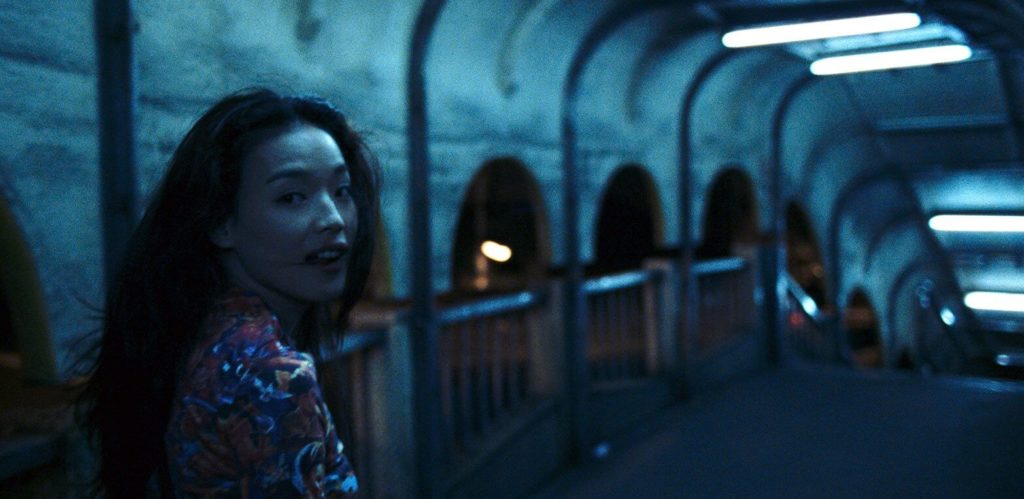
Millenium Mambo plays at the Trylon Cinema from Friday, August 11th, through Sunday, August 13th. Visit trylon.org for tickets and more information.
Toward the end of the first part of Tony Kushner’s Angels in America, set in 1985, the ghost of Ethel Rosenberg visits a dying Roy Cohn, the prosecutor responsible for her execution in a legal witch hunt against her and her husband in the early 1950s, to haunt him in his final days. Jabbing back at Roy’s claim that his forced entry into history makes him “immortal,” Ethel responds, “History is about to crack wide open. Millennium approaches.”
Time seems to split near the millennium: Past and present and future, shattered into fractals, intersecting, interspersed. At the nexus of history, it all surges in a blur. A reflection on the past is a veiled glimpse into the future, again and again.
The first time we see Vicky (Shu Qi) in Millennium Mambo, we hear her voiceover from the future. She moves through a pedestrian overpass, bathed in blue light, drifting in slow-motion like a woman pushing through the expanse of time around her, each step its own crack through history. She looks back—at what? What she may have just left behind? What she fears is following her? What she no longer wishes to take into her future? What she hopes she’s gaining more and more distance from with each passing second? Her voice, 10 years ahead, explains that this moment is in the year 2001. The new millennium has come, and its much-heralded arrival drifts further away with each footfall Vicky takes.
Yet, it’s her words from the future that shape how we view this present moment. Vicky from the future reflects on her past inability to fully leave an abusive lover, Hao-Hao (Duan Chun-hao), behind. Before Vicky has even left this overpass, her life is defined by recursion. Or, as the Vicky from 2011 refers to it: “Again and again.”
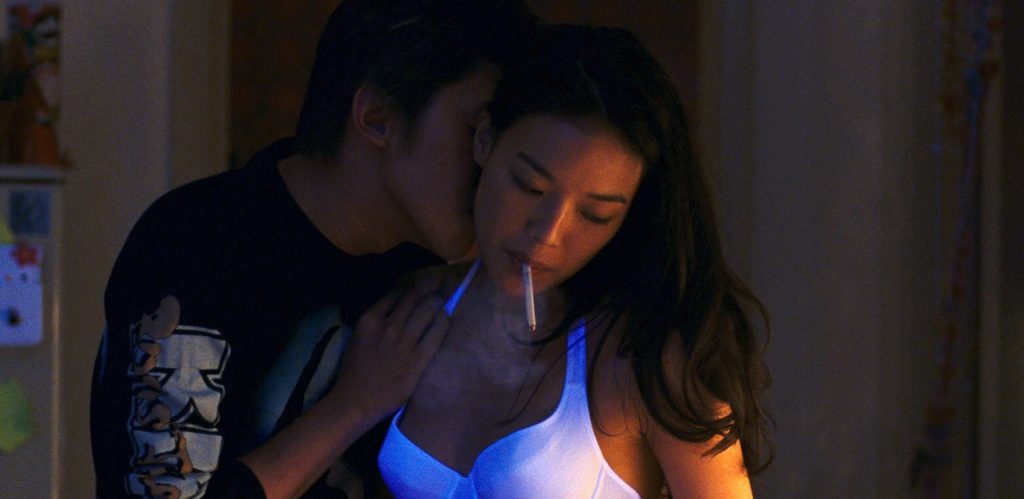
Even with three years between Flowers of Shanghai and Millennium Mambo—a millennium shift from 1998 to 2001—Hou Hsiao-Hsien finds himself drawn to the same stylistic tendencies. His long takes often simmer with a minimalist patience, never calling attention to shot lengths as the camera remains in place, or languidly drifts across the space of a room. His lighting remains a vital tell for his films’ overarching tone, be it the somber oil lamp-lit 19th-century parlors of Flowers of Shanghai or the melancholic neon blues that haunt nearly every place Vicky turns in Millennium Mambo.
Here, too, time is amorphous. The temporal and aesthetic markers of each film are their own distinct identities. But the rhetoric remains the same.
Through Hou’s stylism, Millennium Mambo feels so lived in for how its distinctly contemporary aesthetic encompasses what disaffected young womanhood is in the new millennium. There’s a closeness to the shots and a haze to the mise-en-scène of the film that feel of a different world entirely from the austere nature of the movie’s immediate predecessor. Beneath the fluorescence of a nightclub, or in the soft violet vignetting of an apartment lamp, Vicky glows, but with an intensity that makes her appear submerged, drowned in the color. The past was dim, slow-burning, limited to the colors that pre-electric light could yield. The new millennium is ultra-saturation. The language of cinema may be the same for films set across different millennia, but the words have shifted. The past cannot simply repeat, again and again.
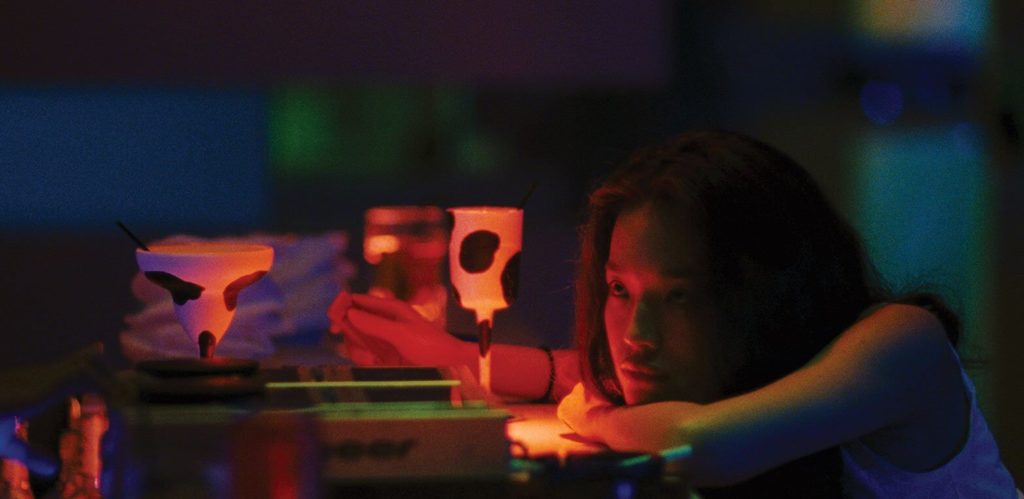
Vicky finds herself in her own form of recursion during the first hour of Millennium Mambo. We watch as her future voiceover proves itself true—Hao-Hao lashes out or accuses Vicky of dishonesty, Vicky hits a breaking point and leaves, Hao-Hao tracks her down and begs her to take him back. The cycle repeats, again and again.
Time seems to recycle near the millennium. It’s an era of reflection, of wondering what the past thousand years mean for the thousand years to come. Future-gazing begets past-gazing begets future-gazing.
What better way to describe the most extreme apprehension of Y2K? A minority strain of people, so gripped by the fears of what their imminent future would hold that they forget the present certainty: that all things insist on enduring forward as well as they can, even when threatened with cataclysm, personal or otherwise. A recursion of progress, a repetition of procession. A slow drift down the temporal path, looking back at what came behind.
But what if the look back is double-edged—just as much about wanting to ensure the past is behind us as it is about being too uncertain to look ahead? We look back because we fear leaving behind a past that is the only certainty we know.
The latter half of the film finds Vicky shaken from the status quo, finally free from Hao-Hao and taken in by a gangster named Jack (Jack Kao). But this new place in life becomes fleeting, transitory, threatened before its novelty can become repetition—as many pivots we may assume will become permanent often shake out, against our will. Jack is forced to disappear, and leaves instructions for how Vicky can find him. But she never does, even after searching. Perhaps this is why Vicky peers back at the camera in the film’s opening—it’s the knowing gaze of a woman who knows she will eventually be alone when she sees nothing behind her.
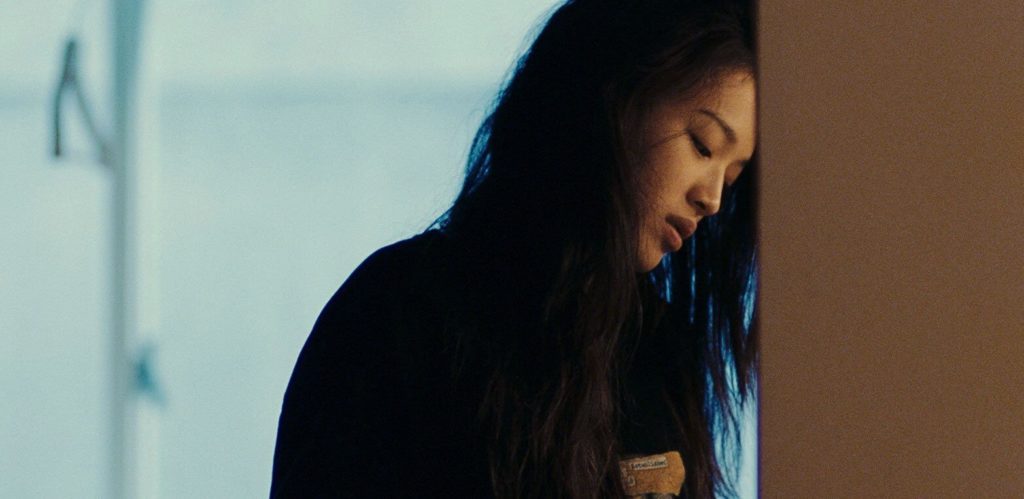
Like Millennium Mambo, Bi Gan’s 2018 film Long Day’s Journey Into Night is, in part, about the ouroboros of time and the fixation of stasis. The film, about a man named Luo who searches for a woman from his past named Wan who drifted away, leaves many intentional ambiguities, locked within the “dream” of Luo’s memories of her. It never becomes clear what compelled Wan to vanish, or whether Wan sees these subjective memories similarly (an implication that’s particularly complicated by Luo’s memories only briefly glimpsing at Wan’s abusive gangster ex, bearing the phonetically similar name Zuo—a possible mirror for all the worst capabilities Luo is afraid to admit of himself.) In the film’s hour-long closing sequence, splinters of Luo’s past break off into an alternate present—or, perhaps, a dream of what he wishes his present could be, until he is able to consummate the dream, envisioning a future for himself that’s impossible in the present.
All the same figures and roles are in Millennium Mambo—the vanished girl, the gangster lover, the abusive ex—but scrambled into a different configuration. Most crucially to understanding the film is that our lead is the woman herself, rather than the men who seek to break through her walls. We live within her emotional state, her interiority, her reflections, and—vitally—her relationship to time. For her time fractures in a manner all its own, a manner that only she—and not the men in her life—will ever know.
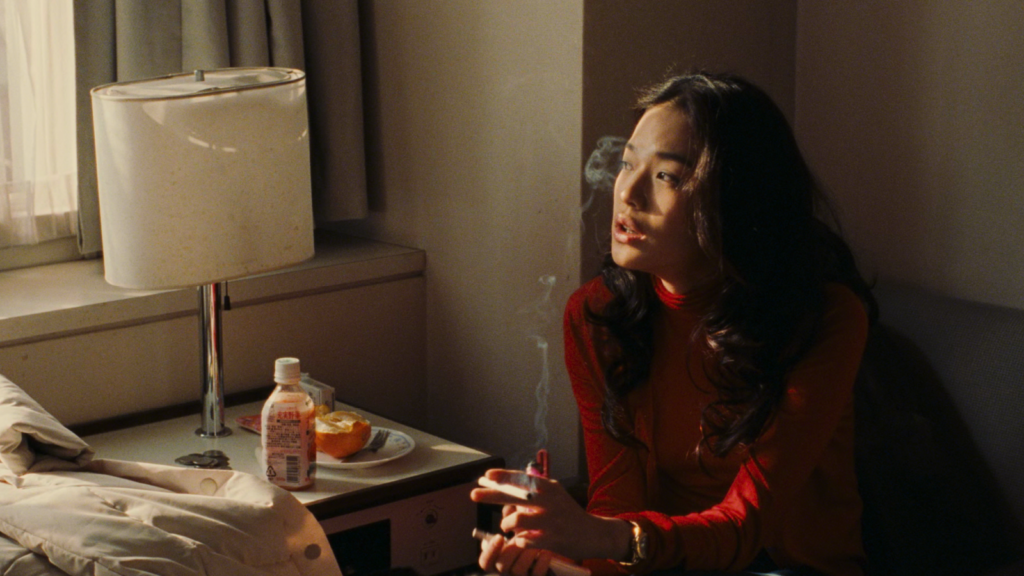
In the quiet of the snowy streets of Yubari, Vicky has vanished from the frame. Her voiceover talks not of how Hao-Hao always tracks her down and how she takes him back, but the striking feeling of loss she’ll feel, knowing he will one day disappear from her life. 2011 Vicky’s voice brings back a refrain: “This happened ten years ago. Back in the year 2001.” But then—“That year, there was heavy snow in Yubari.”
Vicky’s words end there. There is no ellipsis, no suggestion of recursion. No longer is there an “again and again.” Vicky is gone from the haze—the cycle that keeps her suspended in time, perpetually wading through the overpass. In the stillness of the snow, crows frolic, and time has ceased splintering. Millennium fades.
Edited by Olga Tchepikova-Treon
